Interview: Corrosion Of Conformity Guitarist Woody Weatherman Talks 'Animosity' Lineup, Gear and Self-Titled Album

Raleigh, North Carolina-based metal band Corrosion Of Conformity have presented various facets of their musicianship to fans during their 30 years of existence. They've dabbled in stoner, thrash, sludge, crossover and other genres.
With their latest release, their self-titled eighth studio album that was recorded at Dave Grohl’s studio in Los Angeles, they've gone back to their three-piece Animosity lineup of Woody Weatherman on guitar, Mike Dean on bass and vocals and Reed Mullin on drums — they've released their most diverse set of tunes yet.
Besides, they've had a lot else going on this year, with the re-release of their debut album, Eye For An Eye, a new five-song EP that will be released soon and an extensive US tour that starts next month.
A few days ago, I caught up with Weatherman to discuss just about everything COC fans might want to know. Read our conversation below, and visit the band's official website for more information.
GUITAR WORLD: I was looking at the list of your upcoming tour dates. It's a great lineup of bands. It must be exciting for you to go out on a proper touring run like this. You've done shows here and there, but this is a long run.
Yeah! We've been pretty lucky that in the last couple of years we've really had the opportunity to hook up with some pretty cool bands. You know, everything from the Torche guys, Black Cobra and, of course, on this trip we've got ASG and Royal Thunder, and doing some dates with YOB is going to be pretty cool. So we keep having pretty good lineups on these trips. It keeps us interested, and it's good for the fans that come out to see a pretty diverse lineup. It is kind of important for us to keep on that track, because you don't want to go out with bands that are exactly like you, but you do want to keep it in the family, in a similar genre, anyway.
Your first album, Eye For An Eye, is being reissued. What's the reason for that? Is it just because it was out of print?
Get The Pick Newsletter
All the latest guitar news, interviews, lessons, reviews, deals and more, direct to your inbox!
Yeah, it's been out of print for so long, and when Candlelight signed us last year and we put out our latest album with them, they asked us if we'd like to have the first album back in print, and we decided to make a nice package, put a nice booklet in there with some old photos and just make it a little special thing. It's coming out in two or three weeks or something, and it's kind of cool to have that back out because it hasn't been out there in so long. We were just scared when we made that album. It was the first time we got into a studio so we were just figuring stuff out. So it's a time and a place, but some of it still stands out. There's a few good songs in there [laughs].
Does it sound any different, or is it exactly how it was in the original version?
It's pretty much exactly like it was. They re-mastered it, but it's the same stuff. They brought the sound quality up a little bit, but it's the same mixes and all that stuff. It's authentic. It hasn't been like retouched or anything like that (laughs).
Of course, the new release this year was your self-titled album. When I heard it in January, I thought it was so diverse; it felt like a good summary of what the band has done so far, musically, and that's why it's — perhaps, fittingly — self-titled. Would you go along with that?
I do. When we were finished recording it, we were just listening to it, and all of us kind of had the same idea that there's elements of all the different periods of COC. There's some of the faster stuff and there's some stuff that's kind of doomy, so we're stoner rock-ish or whatever you want to call it. I don't know whether that's still a genre these days or not [laughs]. I think the term "doom" has kind of taken that over. But yeah, that's why we decided to do it as a self-titled album.
A lot of people asked us whether it's our greatest album ever and if that's why it's self-titled. I think it's a great album, but I think we've still got even better stuff in the future. We just finished another five-song EP that's coming out mid-November, I think. It's kind of the same, and there's a little bit of everything in that too, some faster songs and some heavier slow stuff, so I think we're going to continue in that vein.
I was going to ask you about the EP. Is it completely finished and ready to release?
It is! It's totally done, mixed and mastered, and we just got finished with it this past week. And I think it's coming out in about three or four weeks. It's a pretty quick turnaround, which is unusual in this day and age, but they can do it, they can make it happen.
So this year you have three releases, the self-titled, the reissue and then this one.
[Laughs] Yeah, which is pretty good for us because we usually make people wait about three of four years between albums, so it's been a very busy year for us. But it's kind of cool to be this busy and be touring as much as we have been. It's been a lot of fun, and a good year.
The three-piece Animosity lineup came back to record this self-titled album. Did you approach the album in the same way as Animosity or is it just the similarity in the lineup?
I think it's pretty much just the lineup. We always approach a record kind of the same. Even way back then, we used to get together in our little practice pad, work the tunes up and then jump in the studio as quick as we can. A lot of times, though, it is good if you can get out and play some of the songs live before you put them on tape, and we were able to do that for this latest album. We did a little short tour right before we started recording that thing, and it gave us a chance to play three or four of them in a live setting. I think it really helped us gel the songs, you know, and made the recording process go a little easier.
Compared to when the band was a four-piece, did you change anything this time in terms of your guitar setup, since you're the only guitarist now?
You know, I really haven't. I've had my same gear and the same setup for quite a while, since probably the mid- to late '90s. I've been using the same amps, I've got some old dual rectifiers and they're still hanging in there. And I'm still playing my ESP, the same guitars I've had since '96 or '97. But I have kind of stopped using pedals live. I plug straight in. I don't even use a Crybaby live anymore. Just straight into the amp and let her go, you know. I think simplicity is what keeps me going, because if I get too much going on, I lose track [laughs]. Maybe it's old age or something like that, but the simpler I can keep it, the better I can play live.
So there's no pedal board at all for you on stage?
Nothing. In the studio, for instance, this new EP, I bust out a few things in the studio. I've got an MXR Phase-90, and I've got a little Crybaby on there. That's about it, but live, nothing. I go naked, as they say [laughs]. I don't use anything, just straight on get up and play.
When you use these effects in the recording, how do you recreate in on stage? Do you just end up sounding different on stage because you don't use them?
Well, it's close. One thing we've always said about ourselves is, we always go a little over the top in the studio, but live it's a different animal, you know. I pretty much recreate stuff. You can't get every effect that you have in the studio, but our live set is a different animal, so I don't get too caught up in trying to make it sound exactly like what's on the record. It's not what COC is really about.
So as you said, you've been using the same ESP guitars since '97. But when you meet other musicians or go to music conventions, do you still like to look at new guitars or are you just completely in love with yours?
[Laughs] There's a little story behind those particular ESPs. Shortly after they started making the Vipers, I did get some Vipers, but I've got three that they made in the custom shop for me originally, and they were a little too close in proportion to the Gibson SG. And I think Gibson said, "Naah, y'all can't make anymore of those" [laughs]. So I do have some Vipers that I occasionally play. I used some in the studio this time, but for the live play I'm just kind of stuck with the old customs I've got. They are real lightweight and well balanced, and they just play well. The only problem is, I've only got three and those are the only three they ever did [laughs]. So I've got to take care of them.
Coming back to the self-titled album, since every song has a different style to it, did you have to use different settings or does it just sound different because of the music itself?
Well, we did that album out in LA at Dave Grohl's place, and he had a back room that was full of amps, and he told us that we could use whatever we want. So I didn't even use my live rig out there. I ended up using different amps, and I wound up using a lot of the Orange Tiny Terror for that thing, stacking up with two or three tracks until it sounded the way we thought it should. So the self-titled record sounds a lot different than, for instance, this new EP we just got done with, which is called Megalodon. I used my total live rig for this thing, and it's a lot closer I think to our live sound than say the self-titled record was. But we had a good time layering the tones for that record. There are a lot of different amps in there, a lot of dual rectifiers and even a bit of Marshall for some of the solos. So I don't get married to my live thing all the time. I'm into experimenting a little bit whenever I get a chance.
So for this EP, I assume you recorded it somewhere else and not in Dave Grohl's studio?
Yeah, we did that in our hometown of Raleigh, North Carolina, which is kind of nice, to be able to hang around in town and not have to go out somewhere, go to LA or New York. Sometimes it's nice to record at home. You get a little better vibe. Plus I got to use all of my own gear. So it was fun.
You mentioned guitar tones, which is something I never get tired of asking about. When you were starting out back then, for instance on the Eye For An Eye album, did it take a lot of work and effort for you to get the tone exactly as you wanted, or did you end up experimenting even through the music that actually came out on the album?
For that record, to be honest, we were such newbies at recording; I had a live rig that was just brutal. I had a Sunn Beta Lead amp and a crazy array of cabinets and stuff, it was just so brutal and I ended up in the studio with it. The studio guys didn't know how to capture that kind of sound! So I wound up using some amp I did not know about, and they talked me into it. I don't even remember what it was. It was some combo thing.
So, looking back on that, I really wish I had used my actual rig. I think that album would have been a lot heavier than it came out being, you know. But I was such a newbie at recording; I had no idea how to do it. It was a little home-studio type setting and those guys had never done a heavy band. They had recorded country bands and may be some rock bands, but not COC rock, you know, not that kind of heavy [laughs]. So we feel for them a little bit. The record doesn't have the tone guitar-wise that I wish it did, so it's kind of a different animal.
I don't really want to put you on a spot here, but I have to ask you this. Purely from a musical point of view, do you prefer the three-piece lineup?
Well, you know, I like the three-piece and four-piece lineups. I think there's going to come a time before too much longer where we become a four-piece band again. I would be into doing another four-piece with Pepper coming back, the Deliverance-era lineup. I think we're all into it; we've all talked about it. But it is fun as a three-piece because it's a little more wide open, you know.
Sound-wise and everything else it's a little bit different, but as far as my guitar playing, I'm kind of the same whether I'm playing in a three-piece of four-piece. I have the same rig and I don't feel like I have a lot more noise to fill as a three-piece, because I just do what I do. I guess some people say that it's a little bit more of a burden, and the less people you have on stage the more pressure there is on you, but I'm comfortable with it.
In the past, you've had a few guest musicians recording songs for you, and one of them was James Hetfield (who contributed vocals on "Man Or Ash" from Wiseblood). Since then, have you guys been in touch, or just been too busy with your own lives?
Ah, I haven't seen James in a while but we did a lot of touring with them back in the day. Heck, we were out with them for about one-and-a-half years on that thing, but I haven't seen him in a while. We did a Sonisphere fest this past spring, and they were on it as well. I think Reed and Mike got a chance to hang with them a little bit and say what's up, but I wasn't hanging right when they were there.
They're still good guys, but I think one of my favorite guest musicians that we've had who really did a good job was Warren Haynes, man. When he came in on the Volume Dealer album and plucked slide on this song called "Stare Too Long". He's one of those guys who just shows up and does it even without thinking about it. Just awesome! [laughs]
On this touring run coming up, what are you going to be focusing on in your set list? You have three releases to promote!
[Laughs] You know, we've got so many albums and such a vast catalog to choose from. We are concentrating on a little bit of the early stuff like we have been, but really I think the self-titled and the brand-new EP are going to be pretty heavy in the set list. And you've got to have a couple of classics thrown in there too, just to not disappoint the people who want to hear that stuff, and we enjoy it too. But I'm going to say on this tour it's going to be about these two new records that have come out this year.
We're not concentrating on the Eye For An Eye thing. It's cool, but we don't really do too much of that stuff live. We do a couple of little tasters and teasers or whatever, but that album is a piece of history for us. We're stoked that it's there, but we don't do much of it live.
Andrew Bansal is a Los Angeles-based writer who has been running his own website, Metal Assault, since early 2010, and has been prolific in covering the hard rock and heavy metal scene by posting interviews, reviews and pictures on his website -- with the help of a small group of people. Besides being hugely passionate about heavy metal, he is an avid follower of jazz music and recently started a blog called Jazz Explorer to pursue that interest.




“These guys started the band the same year I was born – they have a whole world of history together”: How Nicole Row went from a wild ride in Panic! at the Disco to laying down the low-end in Incubus – and rerecording their biggest album
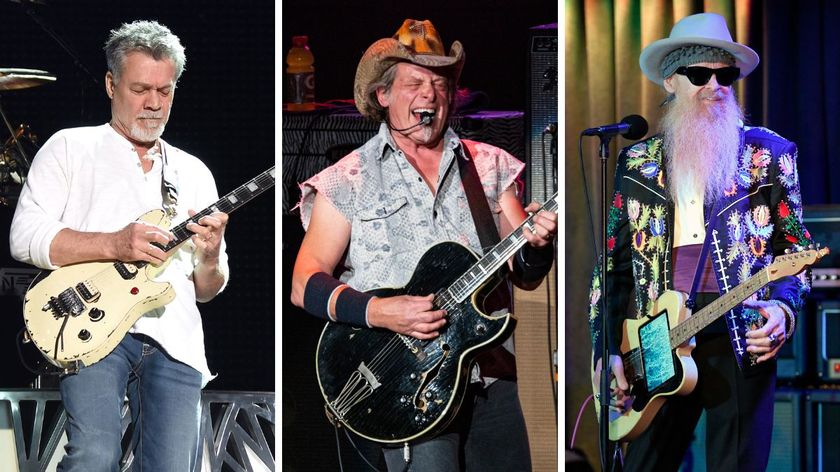
“Who doesn't want to hear the recording of Ted Nugent and Eddie Van Halen jamming?” Ted Nugent's colossal archive includes sessions with EVH, Billy Gibbons and the Mothers of Invention
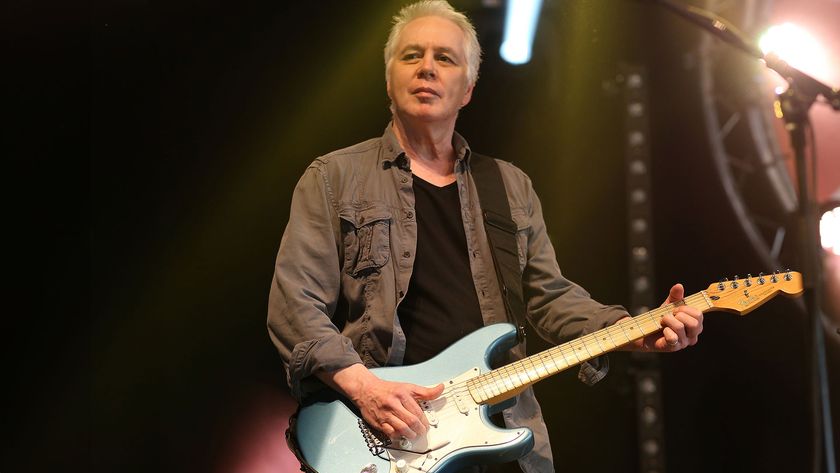
![Adrian Smith [left] and Richie Kotzen pose with an HSS S-style and Telecaster respectively.](https://cdn.mos.cms.futurecdn.net/DqivbKgc2aXLoykDT3h5mN-840-80.jpg)
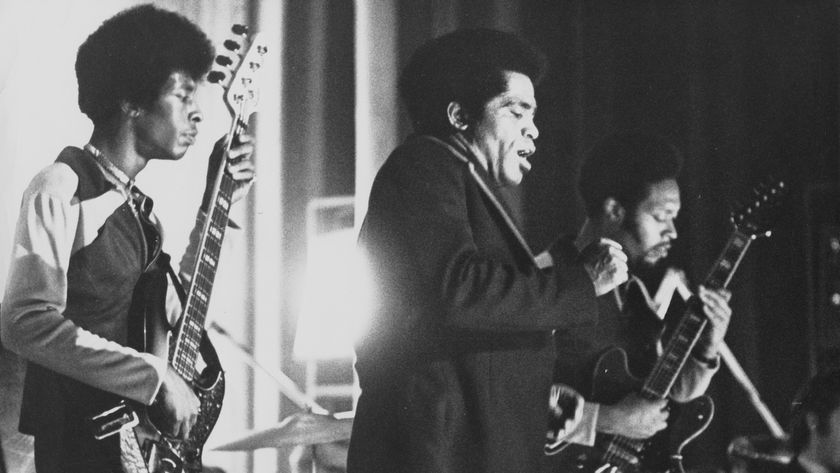
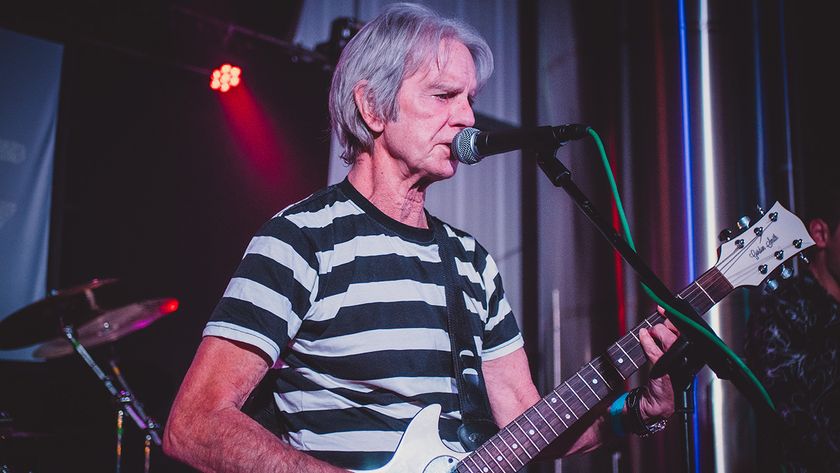
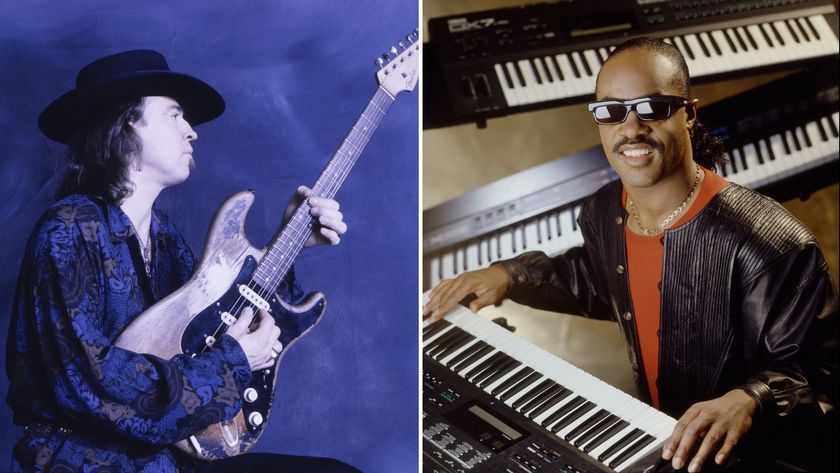
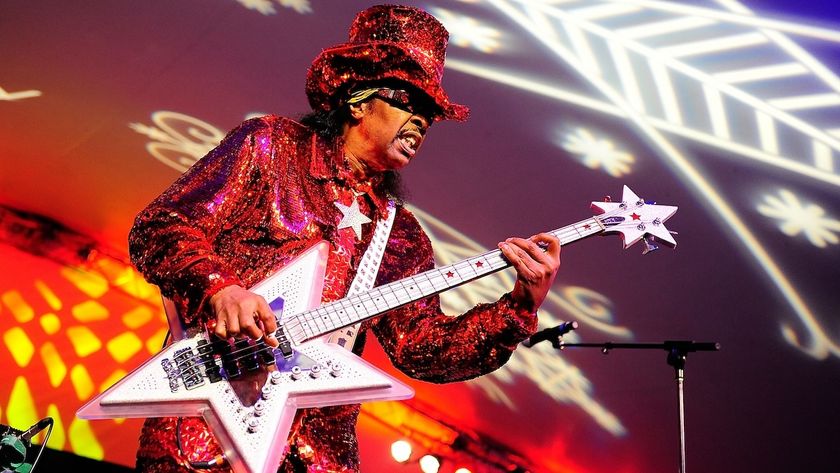
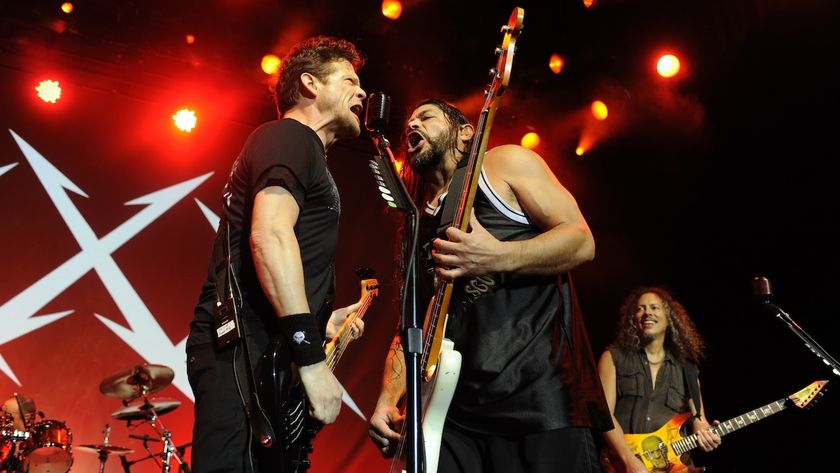
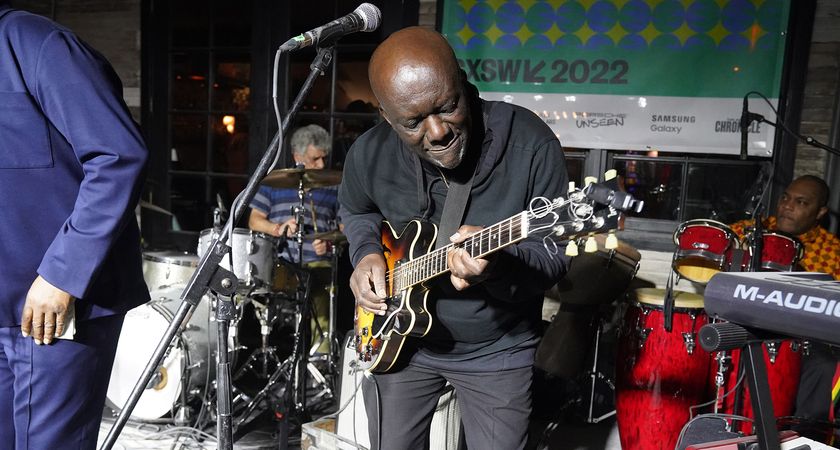
![[L-R] George Harrison, Aashish Khan and John Barham collaborate in the studio](https://cdn.mos.cms.futurecdn.net/VANJajEM56nLiJATg4P5Po-840-80.jpg)